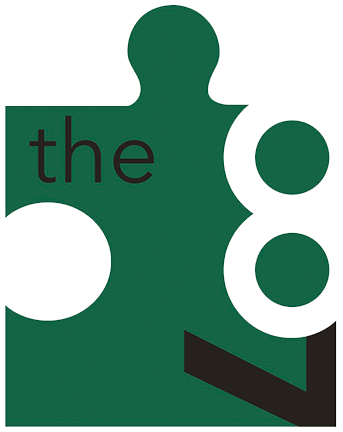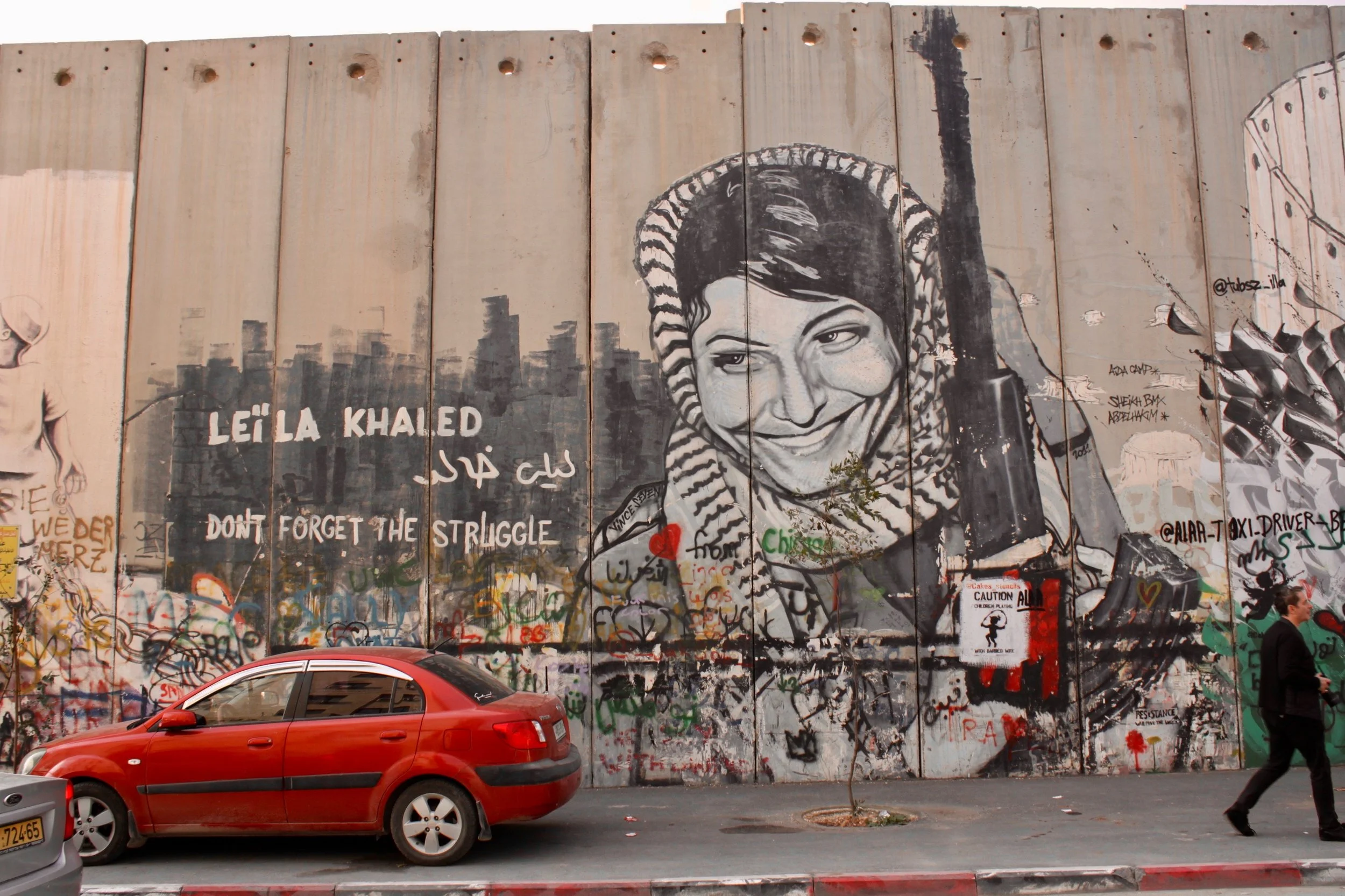Digital Poetics 3.15 The Remedy is Resistance: On Lara Sheehi and Stephen Sheehi’s ‘Psychoanalysis Under Occupation’ by Jeanine Hourani
Photograph by author, 2021
Western, orientalist, and colonial notions of the trauma victim have plagued Palestinain mental health discourses since the British Mandate. Lara and Stephen Sheehi’s Psychoanalysis Under Occupation is a valiant attempt at resisting this discourse. Through a methodological, theoretical, and analytical approach that centres Indigenous experiences and knowledge systems, the book transports the reader through its pages into a world outside these liberal, hegemonic discourses. The reader’s understanding of psychoanalysis, of research and academia, and of Palestine is subsequently transformed by the books unapologetic militant, revolutionary and liberatory understanding of mental health and wellbeing.
The methodological approach of Psychoanalysis Under Occupation contrasts extractive anthropological methods that have been used to study the colonised ‘subject’ throughout history. In protest, the book is forged through communal struggle which required the authors to resist, listen, and learn alongside their Palestinian comrades. The voices of Palestinian psychologists, psychiatrists and mental health workers are not only included but are central throughout the book; their voices are weaved throughout in quotes and anecdotes. By amplifying the lived experiences and lived realities of Palestinians, the book moves us beyond a “psychology of the victim” and, instead, accurately depicts Palestinians as their “full selves and not exclusively as objects of erasure or victims of racist, settler colonialism and, simultaneously, benefactors of our pity”. This review attempts to pay tribute to the spirit of Psychoanalysis Under Occupation by similarly weaving the voices of those interviewed in the book throughout.
Psychoanalysis Under Occupation is unapologetic in its truth-telling. The book honours the socio-political history and material reality of Palestinians which is too often overlooked in academic and clinical spaces under the guise of subjectivity, fact, and detachment. Psychoanalysis Under Occupation insists that in order to understand mental health in Palestine, we must reject the dichotomy that is imposed on us by liberal and conservative psychoanalysis which positions the treatment room as separate from the street. Throughout the book, Sheehi & Sheehi provide testimonies from psychoanalysts, mental health workers and social workers that illustrate how such false separation contributes to the de-historicisation and de-politicisation of Palestinians, their mental health, and Palestine as a whole:
“The occupation is in everything. It is in rules. It is in infrastructure. It is how we pass from one town to another” - Fathy Flefel, Director of the Palestinian Red Crescent Society
“Funding. Training. Awareness. Treatment. Therapy. You name it. Everything is complicated by occupation” - Cesar, Psychoanalyst from Bethlehem
The disavowal of the material conditions of Indigenous populations is at the heart of settler colonial projects and by subverting such approaches, the book is a work of active, material decolonisation.
Another nod to the socio-political history of Palestinians is the clear inclusion and insistence of the whole of Palestine which contrasts mainstream, liberal discourse that differentiates between the West Bank (also commonly referred to as the Occupied Palestinian Territories), East and West Jerusalem, Gaza, and Palestine ‘48 (israel proper). The intention of the book is reaffirmed in a podcast in which the authors discuss the book and in which Lara explicitly states “when we say Palestine, we don’t just mean the occupied territories, or Gaza, or just Jerusalem. We mean all of it. All of it is Palestine”. In my reading of the book and listening of the podcast, the insistence that Palestine is the geographical location, while israel is merely the settler colonial, occupation regime powerfully asserts that Palestine is real and timeless, while israel is a man-made construction that can and will be dismantled.
We see this illustration of Palestine as a whole powerfully articulated by Palestinian psychoanalyst Yo’ad who’s quote closes the book by saying:
“We all come from this nation, or are shaped by it, our beautiful Palestine. We are united in an attempt to go beyond just reactions, but rather emerge settled, steadfast and grounded in intentional action… Colonial theft once separated us, coloured our personal papers and IDs, and disseminated passes amongst us, some blue folders and envelopes, others green, red, or orange. And some of us weren’t lucky enough to even get a colour, but here we are today. Today we are refusing the categories placed on us by others”
Yo’ad, and the book, show us how Palestinian psychoanalysts are actualising the liberation of Palestine through their own practice. Throughout the book, we are shown examples of how Palestinian psychoanalysts are resisting in small ways: such as the seemingly simple act of speaking Arabic in an environment where Hebrew is imposed on clinical work; and in larger ways such as through the unification of Palestinian mental health workers across geographic locations thus materialising a reality where Palestine is unified. The book subsequently celebrates the mental health clinical community as a microcosm of the existing unification of Palestine and Palestinians in the face of a colonial project that is hell-bent on annihilation through fragmentation.
Throughout Psychoanalysis Under Occupation, we are continuously reminded of the role psychoanalysis can and should play in uniting and liberating Palestine. The book even insists that psychoanalysts have a clinical duty to support the liberation struggle. Sheehi & Sheehi argue that in a world where occupation shows up everywhere (including the clinic), resistance also needs to show up everywhere (including the clinic). Palestinian therapeutic practice is thus described and illustrated as an “organic, grassroots, ground-up counter-practice of popular resistance and liberation” as articulated by a social worker interviewed in the Galilee:
“We practice collective liberation through promoting collective wellbeing through theories of care that attend to individual suffering that we cannot separate from collective suffering”
The militant and revolutionary way that psychoanalysis is understood and presented in Psychoanalysis Under Occupation is underpinned by Fanonian anticolonial theories of psychoanalysis that contrast liberal and conservative psychoanalytic readings of the “israeli-Palestinian conflict”. Such readings reduce israel’s brutal settler colonialism and as a tension between ‘two sides’ which de-politicises and de-historicises the violent, ongoing, relentless, and all-consuming machinery of settler colonialism. At an individual level, the co-option of psychoanalysis to further settler colonial projects has reduced to Palestinians into three types of ‘other’:
An ‘other’ who merely needs to meet, understand, and reconcile with their coloniser
A foreign ‘other’ who is distinct from the coloniser and thus dehumanised
A less developed, uncivilised, ‘other’ version of the civilising and colonising, settler self
Such individualisation of Palestinians into different types of ‘other’ illustrates precisely how the israeli regime attempts to atomise Indigenous Palestinians into individuals who are removed from their communal networks. This separationist project is embedded in practices of psychoanalysis that attempt to delink the individual from the communal which is an act of both violence and alienation. Psychoanalysis Under Occupation subsequently centres the Fanonian principle of ‘disalienation’ which is a practice by which colonised people refuse to perceive their reality as definitive.
Throughout the book, Sheehi & Sheehi show us that disalienation is not merely theoretical. Rather, the book practically centres communal Palestinian knowledge systems and ways of resistance, such as:
Nafas, which is a soulful expression of the relationship between mind, self and spirit
Sumud, which is a political and social collective practice that is an impenetrable manifestation of Palestinian refusal to die
Wa’i, which is an Indigenous Palestinian practice of consciousness (or disalienation)
By theoretically and practically displaying alternative ways to view and understand psychoanalysis, Sheehi & Sheehi actively and powerfully push back against narratives imposed on us by the trauma industry that aim to stifle liberatory and revolutionary potential by locating the problem within the individual rather than in the structural or systemic. Indeed, trauma therapy aims to produce individuals which necessarily undermines popular resistance movements. The consciousness of this by Palestinian mental health workers is importantly articulated in the book by Samah Jabr, director of the Mental Health Unit at the Palestinian Ministry of Health. She states:
“We understand how psychological intervention can and is used to punish political behaviour. We understand how it is used to dismiss political claims of the Palestinian people. Preserving the social fabric and coherence of Palestinian society is essential to mental health but we also aware how we treat our patients so therapy is not a continual process of re-traumatisation”
The book thus calls on the reader to consider: what would happen if we had aware, disalienated, radical, militant clinical subjects? The answer is a national liberation movement. The book subsequently highlights the potential of psychoanalysis and psychoanalysts, through political consciousness, to treat patients in a way that is radically transformative and liberatory.
Throughout Psychoanalysis Under Occupation, the Palestinian street and the Palestinian clinic are positioned as sites of psychoanalytic knowledge production. This reinforces Fanon’s belief that, contrary to mainstream academic approaches, it is impossible to consider theory and practice as separate from one another; they are inextricably linked in a symbiotic and bidirectional manner. The book thus compels the reader to consider: how can we ensure, protect, and amplify the translation of Indigenous Palestinian ways of understanding and talking about mental health into mainstream clinical practice?
At its core, what Psychoanalysis Under Occupation argues is the importance of centring communal practice, amplifying Indigenous knowledge systems, and incorporating Palestinians’ political reality and ways of resistance in our framing of mental health. By doing so, political and community organising will be reframed as expressions of self-care, self-affirmation, autonomy and sovereignty; only by allowing Palestinians to transcend the trauma model will we create a clinical context that enables them to rally the liberatory potential within them. As Nidal from Ramallah beautifully articulates:
“The resistance keeps us sane. This comes from your family. Your community. From our art and our literature. From our heroes, from our mothers, fathers, brothers and sisters… Anti-oppression activism is our remedy against political trauma and it will heal us as individuals and help us heal the injured history of our homeland”
*
Jeanine Hourani is a Palestinian organiser, writer, and researcher. She is an ESRC funded PhD candidate at the University of Exeter, researching the intersection of women’s resistance, settler colonial violence, and mental health in Palestine.
*
The moral right of the author has been asserted. However, the Hythe is an open-access journal and we welcome the use of all materials on it for educational and creative workshop purposes.

